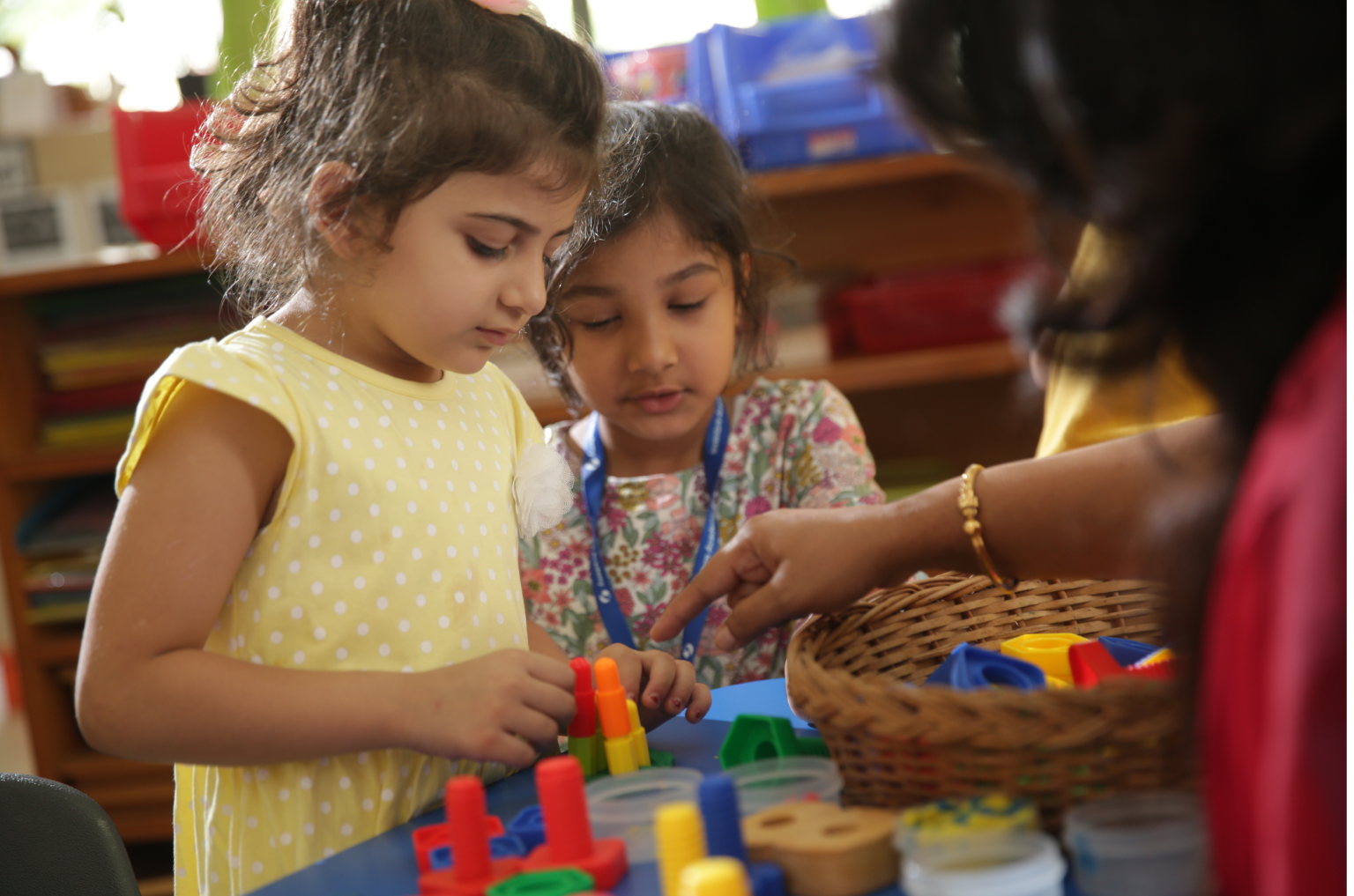Early preschool development is greatly influenced by fine motor skills. These skills, which require tiny hand and finger muscles, are necessary for daily duties, including holding a pencil, buttoning a blouse, and handling tiny objects. Early development of these abilities can lay the groundwork for a child’s physical and cognitive growth for parents and teachers.
Table of Contents
ToggleUnderstanding Fine Motor Skills
What Are Fine Motor Skills?
Fine motor skills involve coordination of the small muscles in the hands, fingers, and wrists. These skills allow children to complete tasks that require precision and control, such as drawing, cutting with scissors, or stacking blocks. Developing fine motor skills in preschoolers is crucial, as they are necessary for academic tasks like writing and practical tasks like using utensils or dressing themselves.
Importance of Fine Motor Coordination
Fine motor coordination is the ability to synchronize the movement of small muscles with visual input. This coordination plays a significant role in a child’s daily life. Strong fine motor coordination enables preschoolers to grasp and manipulate objects more efficiently. This, in turn, supports their ability to engage in more complex activities as they grow older, such as writing, typing, or playing musical instruments. The earlier a child develops fine motor coordination, the smoother their transition into academic and social activities will be.
Activities to Enhance Fine Motor Skills
Engaging Fine Motor Skills Activities
Numerous fine motor skills activities are designed to strengthen the small muscles in preschoolers’ hands. Some engaging activities include:
- Playdough Manipulation: Squeezing, rolling, and pinching playdough helps strengthen hand muscles.
- Threading Beads: This activity enhances hand-eye coordination and finger control.
- Cutting Paper: Using child-safe scissors encourages control and precision.
- Building Blocks: Stacking and balancing blocks promotes hand dexterity.
- Finger Painting: A fun way for children to express creativity while working on fine motor abilities.
Fun Exercises for Preschoolers
Fun exercises can transform fine motor skill development into an enjoyable experience for preschoolers. Consider these exercises:
- Tweezer Games: Using tweezers to pick up small objects like cotton balls or beads strengthens the pincer grasp.
- Buttoning and Zipping Practice: These everyday tasks help children develop control over hand movements.
- Sticker Fun: Peeling and placing stickers on a surface enhances fine motor control and concentration.
- Sensory Bins: Encouraging children to dig through rice or sand to find hidden treasures works on grasping and hand strength.
The Role of Pincer Grasp in Fine Motor Development
Encouraging Pincer Grasp Skills
The pincer grasp involves using the thumb and index finger to pick up small objects, and it is a crucial component of fine motor development. Mastering the pincer grasp enables children to pick up a pencil or manipulate small toys.
Activities to encourage the development of the pincer grasp include:
- Picking Cheerios or small snacks: This simple yet effective exercise promotes precise finger movements.
- Using Clothespins: Opening and closing clothespins strengthens the thumb and index finger.
- Puzzles with Small Pieces: Manipulating small puzzle pieces helps refine the pincer grasp.
Benefits of Developing Fine Motor Abilities
Developing fine motor abilities in preschoolers offers a range of benefits, including:
- Improved Independence: Children with strong fine motor skills are better equipped to dress, feed, and complete daily tasks.
- Enhanced Writing Skills: Fine motor abilities lay the groundwork for properly holding a pencil and forming letters.
- Boosted Confidence: Mastering new tasks helps build a child’s self-esteem and encourages them to take on more challenges.
Integrating Fine and Gross Motor Skills
Combining Fine and Gross Motor Activities
While fine motor skills focus on smaller muscle groups, gross motor skills involve larger muscle movements, such as running, jumping, and balancing. Integrating both fine and gross motor activities is essential for well-rounded development.
Some activities that combine both skills include:
- Obstacle Courses: Encouraging children to climb, crawl, and manipulate small objects along the way.
- Ball Games: Catching and throwing balls help with coordination and balance while fine-tuning hand movements.
- Yoga for Kids: Yoga strengthens core muscles while incorporating poses that involve precise hand positioning, thus benefiting both fine and gross motor development.
Holistic Development Through Play
Play is a natural and essential part of childhood development. When children engage in activities that involve both fine and gross motor skills, they are working on holistic development. Play allows children to explore their environment, develop social skills, and build physical strength and coordination. By incorporating both types of motor skill activities into daily routines, parents and educators, such as those at Inventure Preschool, can ensure that children grow in a balanced and well-rounded manner.
Tips for Parents and Educators
Supporting Fine Motor Development at Home
Parents play a significant role in developing their child’s fine motor skills. Here are a few tips to support fine motor development at home:
- Provide Age-Appropriate Toys: Toys like blocks, puzzles, and crayons encourage the use of fine motor skills.
- Create Daily Opportunities: Involve children in daily activities like baking (stirring, kneading dough), gardening (digging, planting), or folding laundry (pinching clothes to fold them).
- Limit Screen Time: Instead of letting kids spend all day in front of screens, encourage them to participate in hands-on activities.
Creating a Stimulating Environment
A stimulating environment is important in promoting fine motor skills development. Consider these strategies:
- Set Up Play Stations: Designate areas for drawing, building blocks, or sensory play.
- Incorporate Nature: Let children explore natural elements like sand, water, and leaves, which provide different textures and promote hand-eye coordination.
- Rotate Activities: Keep children engaged by rotating toys and activities to avoid monotony and stimulate new skill development.
Conclusion
Fine motor skills are an essential part of a preschooler’s overall development. By focusing on activities that encourage fine motor coordination and the pincer grasp, parents and educators can ensure that children are prepared for the more difficult tasks they will face as they grow. Kids can build a strong foundation for their future academic and personal success through fun exercises, engaging activities, and a well-rounded approach to integrating both fine and gross motor skills. Supporting fine motor skills development at home and school is crucial, and creating a stimulating environment can further foster these abilities. At Inventure Academy Preschool, we emphasize the importance of developing fine motor skills through playful learning, ensuring that each child gets the attention and care needed for holistic growth.
FAQ
What are fine motor skills?
The synchronization of hand and finger muscles is known as fine motor abilities, and it is necessary for activities like writing, painting, and using utensils.
Why are fine motor skills important for preschoolers?
Fine motor skills are crucial for preschoolers. They help with everyday tasks such as dressing and eating and prepare them for writing and school-related activities.
What activities can help develop fine motor skills?
Activities like threading beads, cutting with scissors, and playing with playdough are great ways for preschoolers to develop fine motor skills.
How does the pincer grasp contribute to fine motor development?
The pincer grasp involves using the thumb and index finger to pick up small objects, essential for daily tasks such as holding a pencil, using utensils, and manipulating small objects.
How can parents support fine motor skills development at home?
Parents can support fine motor development by providing age-appropriate toys, involving children in daily activities, and creating opportunities for hands-on learning.
What is the difference between fine and gross motor skills?
Fine motor skills involve small muscle movements, such as grasping and manipulating objects, while gross motor skills involve larger muscle movements, such as running, jumping, and balancing.



